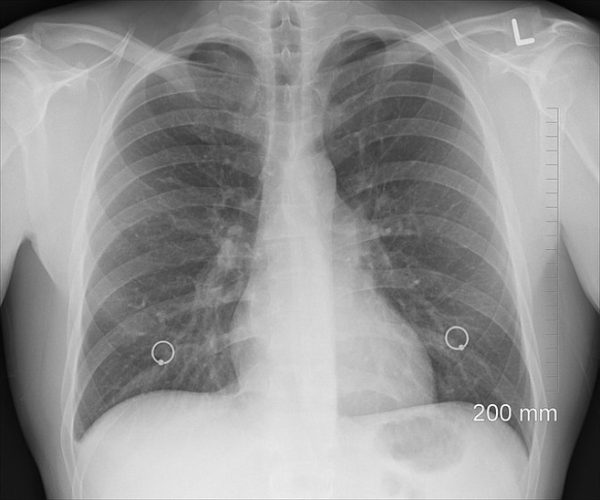
What is Mesothelioma
November is Mesothelioma awareness month. Mesothelioma is an aggressive, rare form of cancer. It develops in the lining of lungs, heart and abdomen. According a report by CDC (Centers for Disease Control, 2017) 2,400 to 2800 people diagnosed with mesothelioma in the US alone each year.
Who is at higher risk of developing mesothelioma?
People who have worked or exposed to asbestos have higher risk of developing this rare form of cancer. ! Exposure, inhalation or swallowing asbestos fibers. If a person comes in contact with asbestos while working or by other means, it can take 20-50 years to appear! Men are at higher risk of developing mesothelioma. It can affect their abdomen, lungs, heart and testes.
Is there a cure?
As per Mesothelioma experts, the life expectancy of patients who suffer from this cancer, is poor as there is no cure for the disease. Key factors that play role in chance of a patient survival are – cell type, stage of the disease and location of tumor(s). Other factors like patients age, overall health also play crucial role in prognosis.
Types of Mesothelioma:
Pleural Mesothelioma: It is the most common type of mesothelioma and is caused by the inhalation of asbestos fibers. Every year nearly 2500 people are diagnosed with pleural mesothelioma in US. Asbestos is the definitive cause. After diagnosis and cancer treatments life expectancy of patient can be average 6 to 12 months.
Symptoms: Symptoms of pleural mesothelioma might appear anywhere from 20 to 50 years. Asbestoses fibers will stick to lungs during exposure causing inflammation and scarring overtime. As scarring worsens tumors develop and person will have problem in chest and respiratory system. Pleural effusion or fluid buildup in pleural cavity is one of the most common system. Excess fluid interferes with lung and other neighboring organs functions.
Chest pain, shortness of breath, fluid in lungs, dry cough, weight loss, fever, fatigue and night sweats are some of the symptoms.
X-Ray, CT scans, PET or MRI helps to find potential tumors.
Peritoneal Mesothelioma: It is found in peritoneum membrane of abdomen. It is the second most form of mesothelioma type. This type of mesothelioma is very rare. Survival rate of patients is better due to new treatments like hyperthermic intraperitoneal chemotherapy.
Cell type, tumor size, stage of cancer, gender and age plays role in survival of patients.
Symptoms: Inhalation and ingestion of asbestos fibers results in lodging of the fibers in peritoneum causing irritation scar tissue. Damaged cells develop tumors.
Abdominal pain, swelling, anorexia and weight loss, fluid in peritoneal cavity, night sweats, blood clotting, fever, intestinal obstruction, inflammatory lesions are some of the symptoms.
Diagnosis is by CT scans, X-rays, blood test (to rule out the other conditions), biopsy.
Pericardial Mesothelioma: Extremely rare form of mesothelioma. Cancer develops in pericardium membrane around the heart. Prognosis of this cancer is extremely poor and in most cases autopsy reveals the cause of death! Each year about 50 people are diagnosis with this type of mesothelioma.
This type sometimes forms secondary tumors in the body. Pericardial mesothelioma has the worst life expectancy and it could be up to 6 months. Very few cases so far reported on this type of cancer. Stage, cell type, age and gender play crucial role in survival. patients who suffer from this experience metastasis or adenocarcinoma.
Symptoms: It takes many years for symptoms to appear. It develops in between two layers of delicate membrane around heart. Researchers are unsure how the asbestos fibers reach the heart membrane. Tumors thickens the membrane and limit the function leading to improper heart functioning.
Chest pain, night sweats, irregular heartbeat, fluid collection, difficulty in breathing, heart murmurs, low BP, heart compression, inflammation of pericardium are symptoms.
Diagnosis of this cancer type is difficult. CT scan, x-rays might help to find pericardial effusion or any visible tumors. Biopsy is correct way to find the disease.
Treatments:
Like other cancer types, mesothelioma treatment depends on stages (1 to 4). For all mesothelioma standard treatments are surgery, chemotherapy, and radiations. Newer treatments are part of research and clinical trials and might be available for patients who does not respond to conventional therapies.
Some patients may show improvement and their life expectancy might improve significantly after receiving the treatments.
Mesothelioma is a rare type of cancer. If you or your close ones who worked with asbestos or in the close vicinity of asbestos and show above symptoms, then talk to your doctor. Your doctor will recommend you what should be your next step.
References:
https://www.cancer.org
https://www.cancer.gov/types/mesothelioma
https://www.maacenter.org/mesothelioma/
Image credit: Image by oracast from Pixabay (Free for commercial use)
Author: Sumana Rao | Posted on: November 5, 2018
« October 15: Pregnancy and Infant Loss Remembrance Day Must know answers to your cataract questions »






















Write a comment